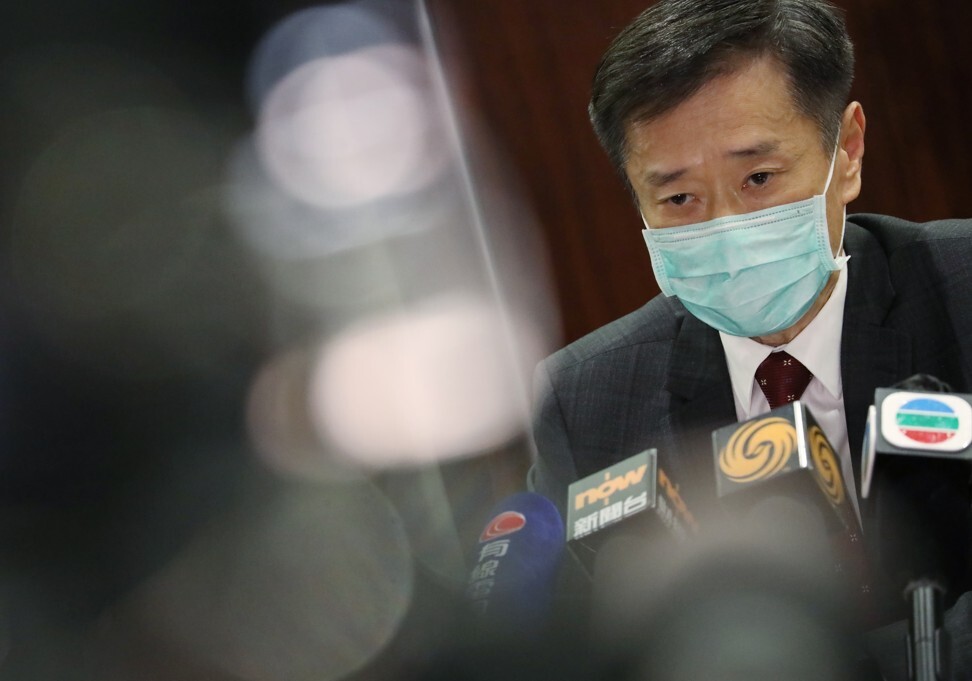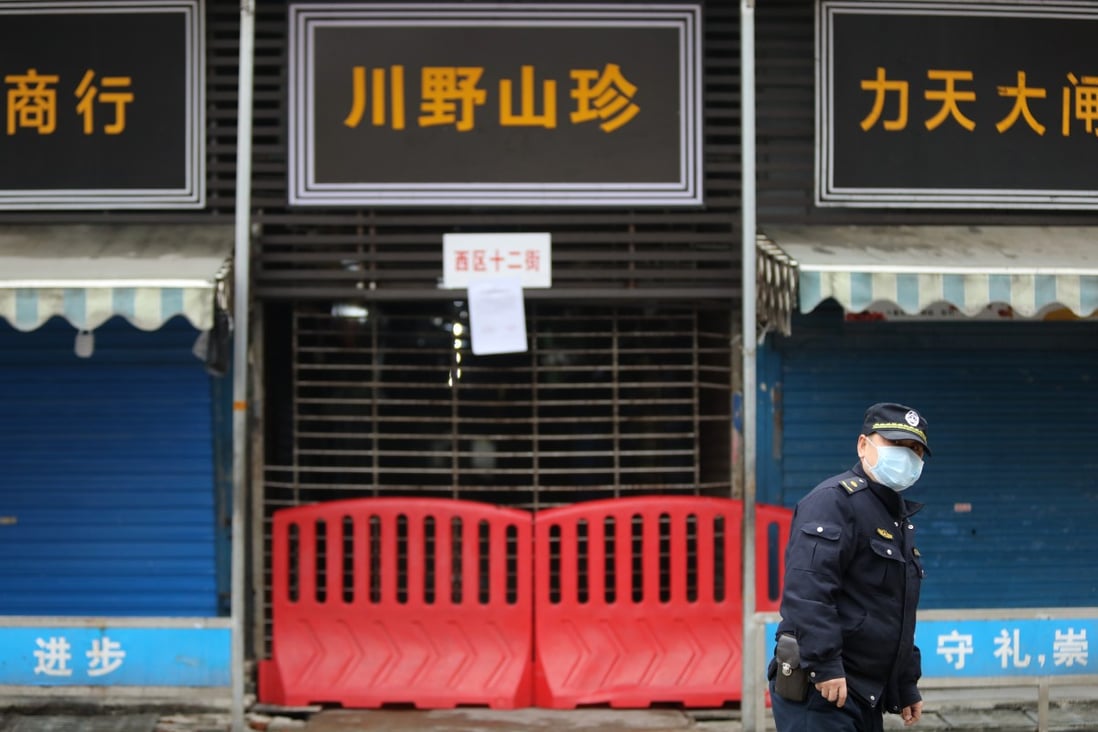Wuhan pneumonia: how the search for the source of the mystery illness unfolded
- Weeks after seafood market in central China became ‘ground zero’, authorities are still unsure if human-to-human transmission has role in outbreak
In 2002 and 2003, Sars – severe acute respiratory syndrome – infected more than 8,000 people globally and killed more than 600 in mainland China and Hong Kong.
Register and follow to be notified the next time content from Coronavirus pandemic is published.
Coronavirus: chronically ill Hongkonger dies days after getting BioNTech Covid-19 vaccine, while experts push for return of international travel
- The 66-year-old man was given his first dose of German-made vaccine on Tuesday and died on Friday
- City logs 13 new Covid-19 cases, with 10 of those locally transmitted
He was the eighth person to die after getting a jab since the city launched its vaccination drive last month. It was the first involving the German-made vaccine.
Previously, seven chronically ill people died after receiving the Chinese-made Sinovac jab. But no link between the deaths and the jabs has been established so far.
Ten of the city’s newest infections were locally transmitted, including four from untraceable sources. The remaining three were imported from Indonesia and the Philippines.
01:26
China seeks recognition of its WeChat-based digital health certificates for overseas travel
Pushing for the return of international travel, lawmakers and medical experts in Hong Kong pointed to the emergence of “immunity passports” for those who have been vaccinated against the virus. But their pleas also raised questions over potential complications for any scheme, with governments and organisations around the world taking different approaches to the issue.
The European agency has given its backing to the vaccines produced by Pfizer-BioNTech, AstraZeneca, Moderna and Johnson & Johnson, while the WHO has only approved the first two of those.
Iceland has opened its borders to all travellers if they have a vaccination certificate issued by either the EMA or WHO, and will issue immunity passports for its citizens so they can travel internationally. But the WHO currently advises against these, believing more evidence is needed to establish whether the vaccines slow the transmission rate of the virus.
University of Hong Kong microbiology professor Ho Pak-leung wants the Hong Kong government to consider allowing people with full vaccination to travel using a vaccination passport. He suggested beginning with a small network involving places such as mainland China, Taiwan, Japan and South Korea.
Under his plan, which he called a “good starting point”, people could travel 14 days after getting the second dose of vaccine, would be exempt from quarantine after entering the agreed countries and regions, and would be tested for Covid-19 on their return.

Tourism sector lawmaker Yiu Si-wing dismissed concerns that governments would limit which vaccines they recognised under a passport scheme, and emphasised the need for the global economy to get going once again.
“It’s impossible for all economies to survive on local consumption alone, which is why now that there are vaccines and with the goal of reaching herd immunity, we should discuss how to reopen our economy to cross-border and international travel,” he told a radio programme.
In total, some 304,000 people out of the city’s population of 7.5 million have received their first vaccine dose in Hong Kong since the launch of the city’s inoculation scheme in late February.
On Friday, as of 8pm, around 11,800 people received the Sinovac jab and about 15,700 others took the BioNTech version at community vaccination centres.
With the deaths surrounding the Sinovac vaccine already hitting public confidence, the latest fatality has dragged the BioNTech jab into the spotlight, but government pandemic adviser Professor David Hui Shu-cheong said the man was likely to have died of a heart attack because of his underlying health conditions, including a history of diabetes, high blood pressure and high cholesterol.
“I don’t have any information about this case,” Hui said. “However, as he had so many cardiovascular risk factors before, natural death due to acute myocardial infarction would not be surprising.”
The man was found collapsed in a car on Friday morning and admitted to Alice Ho Miu Ling Nethersole Hospital, but did not respond to resuscitation and died, officials said.
He had not complained of feeling ill during observation after he was vaccinated at the Lung Sum Avenue Sports Centre in Sheung Shui.
09:33
Travel may resume slowly ‘in 3-6 months’ with pandemic limits, says Hong Kong tourism chief
The 13 cases on Friday took the total number of infections in the city to 11,363, with 203 related deaths. There were fewer than 10 preliminary-positive infections recorded.
Of the latest cases, four were untraceable, including a 23-year-old man who works in Sha Tin. His family members were confirmed as infected last month, and he was sent to a quarantine centre but tested negative multiple times.
Dr Chuang Shuk-kwan of the Centre for Health Protection said officials were still investigating whether the man had been infected by his family members or if he had only just contracted the disease.
“It could be a new infection because he had a recent onset of symptoms but we cannot rule out that he was infected earlier by his family members and went undetected in the quarantine centre,” she said.
“His first sample had a high CT value [indicating low viral load], so we will need to see if he tests positive for antibodies in hospital, which would suggest he was infected earlier.”
A 62-year-old housewife who lives in Lam Tin was also an unlinked case. She often visited Chiu Fook Cuisine, a restaurant in Kai Tin Shopping Centre. A neighbour she came into contact with there also tested preliminary-positive for the virus.
But health authorities did not consider the infections at the restaurant an outbreak.
The two other untraceable cases were a 71-year-old kitchen worker at an eatery in Kei Lun Wai, Tuen Mun who did not interact with customers or prepare food, and a 36-year-old IT worker at One Island East.
Three more infections were linked to the Ursus Fitness cluster, pushing the total number of cases stemming from the gym to 138.
Meanwhile, the US consulate in Central will reopen for public services on Monday, it said in a statement.
It said all those required to have a Covid-19 test returned negative results, and the premises had been thoroughly disinfected and cleaned. Two US consulate employees and their three-year-old daughter were previously confirmed as infected.
Separately, the government announced a list of 30 hotels for the third round of the city’s designated quarantine hotel scheme, providing about 8,300 rooms from April 21 to June 19.
This is down from around 10,000 rooms in the second round of the scheme from mid-February to mid-April, when 36 hotels were on the list.














































SCMP Editorials
Opinion
Harry's View
Letters